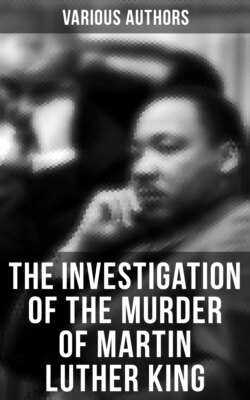Читать книгу The Investigation of the Murder of Martin Luther King - Various Authors - Страница 9
На сайте Литреса книга снята с продажи.
D. Findings Regarding The King v. Jowers Conspiracy Allegations
ОглавлениеKing v. Jowers was a civil lawsuit in a Tennessee state court brought by King family members against Loyd Jowers for the wrongful death of Dr. King. The trial concluded in December 1999. The jury adopted a verdict offered by the parties finding that Jowers and "others, including government agencies" participated in a conspiracy to assassinate Dr. King. The trial featured some, but not all, of the information already considered by our investigation. Significant evidence from the historical record and our original investigation that undermines the credibility of Jowers' allegations was not presented. Nothing offered during the trial alters our conclusion regarding Jowers' or Wilson's allegations.2
The trial also featured a substantial amount of hearsay evidence purporting to support the existence of various far-ranging, government-directed conspiracies to kill Dr. King. Witness testimony and writings related secondhand or thirdhand accounts of unrelated, and in some cases, contradictory conspiracy claims. For example, an unidentified person who did not testify alleged in an out-of-court deposition, which was read to the jury, that he participated in a conspiracy to assassinate Dr. King initiated by the President and Vice President of the United States and the head of the AFL/CIO labor union. Unrelated to that claim, the notes of an interview of an unidentified source, which were written by a journalist who did not testify, purported to document a claim that a military team was conducting surveillance of Dr. King and actually photographed the assassination.
Significantly, no eyewitness testimony or tangible evidence directly supported any of the conflicting allegations of a government-directed conspiracy. The only relevant non-hearsay eyewitness accounts presented at the trial suggest nothing more than the possibility that Dr. King, like other civil rights activists who were the subjects of government surveillance in the 1960s, may have been watched by military personnel around the time of the assassination. However, we found nothing to indicate that surveillance at any time had any connection with the assassination.
Critical analysis of the hearsay allegations in light of significant information that was not introduced at the trial demonstrates that the none of the conspiracy claims are credible. No evidence corroborated the various allegations and other information contradicted them. For instance, in the case of the interview notes of a source claiming that his military surveillance team witnessed and photographed the assassination, we found nothing to substantiate the allegation but, rather, information to contradict it. The journalist who wrote the notes also told us that he did not credit the source or his story.
Other evidence introduced in King v. Jowers suggested the existence of yet another conspiracy apparently unrelated to the alleged government-directed conspiracies. In this regard, witnesses testified offering observations and hearsay accounts implying that two African American ministers associated with Dr. King were part of a plot to kill him.
The allegations against the African American ministers are far-fetched and unpersuasive. Additionally, we found no information during our investigation of the Jowers and Wilson allegations or our review of the historical record to substantiate these claims, while significant information, not introduced at the trial, contradicts them.
In sum, the evidence admitted in King v. Jowers to support the various conspiracy claims consisted of inaccurate and incomplete information or unsubstantiated conjecture, supplied most often by sources, many unnamed, who did not testify. Because of the absence of any reliable evidence to substantiate the trial's claims of a conspiracy to assassinate Dr. King involving the federal government, Dr. King's associates, Raoul, or anyone else, further investigation is not warranted.
